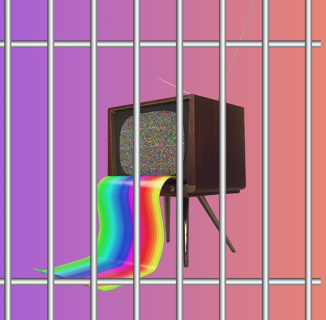North Carolina has put voter ID requirements on the books expected to substantially disenfranchise the state’s estimated 44,750 transgender residents.
On Wednesday, the state’s legislature overrode Governor Roy Cooper’s veto of SB 824, which lays out voter ID requirements in the state. More than 55 percent of North Carolinians voted in November to put an ID law in place.
The legislature was tasked with passing a bill to figure out how to implement the law. But LGBTQ advocates say the bill passed Wednesday puts unnecessary hurdles between transgender people and the polls.
That’s the because the new law accepts a relatively short list of photo IDs–under SB 824, voters can use a driver’s license, state-issued ID, a tribal enrollment card, a school ID, a military ID or a government employment ID.
North Carolina is also exceptionally restrictive when it comes to changing gender markers.
In 2015, the National Transgender Survey found that 77 percent of the transgender North Carolinians hadn’t updated a single ID to correspond with the gender that fit for them.
That could be, in part, because the North Carolina Department of Motor Vehicles requires proof of gender affirmation surgery before allowing trans people to change the gender markers on their IDs.
Equality North Carolina Policy Director Ames Simmons said his organization lobbied for the new law to accept as broad a range as documents as possible for voting.
“We know that when trans people have identification that does not match their gender presentation, it places them at risk for harassment, for discrimination, even for violence sometimes,” Simmons told INTO. “There have been instances where trans people who were presenting photo ID, in some of the other states that require photographic voter ID, where poll workers harassed them or asked them to leave or denied them a ballot.”
The bill has also drawn strong criticism for disenfranchising voters of color and low-income residents. It marks the second attempt to pass voter restrictions in the state after a federal appeals court found a 2016 ID law was “passed with racially discriminatory intent.”
The Southern Coalition for Social Justice, an organization that fights racial injustice in the state, has already filed a lawsuit against the measure.
“It intentionally discriminates against and disparately impacts African American and American-Indian qualified, registered voters, as intended by the General Assembly,” the suit alleges.
Among other things, the suit also claims that the bill violates the state’s constitution by placing a financial burden on voting, as many will have to pay for IDs.
“Any legislative scheme that requires voters to present ID when voting must have fail-safe measures to ensure that not one single eligible voter is disenfranchised,” said Allison Riggs, senior voting rights attorney for the Southern Coalition for Social Justice, in a statement. “Our State Constitution demands it. This legislation does not do that.”
The LGBTQ think tank the Williams Institute expected over 78,000 transgender people to be disenfranchised by voter ID laws during November midterms. The National Center for Transgender Equality Action Fund launched a campaign to combat disenfranchisement in response earlier this year.
Simmons said Equality North Carolina will be launching a similar statewide effort in response to the new law.
Image via Getty
Help make sure LGBTQ+ stories are being told...
We can't rely on mainstream media to tell our stories. That's why we don't lock our articles behind a paywall. Will you support our mission with a contribution today?
Cancel anytime · Proudly LGBTQ+ owned and operated
Read More in Impact
The Latest on INTO
Subscribe to get a twice-weekly dose of queer news, updates, and insights from the INTO team.
in Your Inbox













